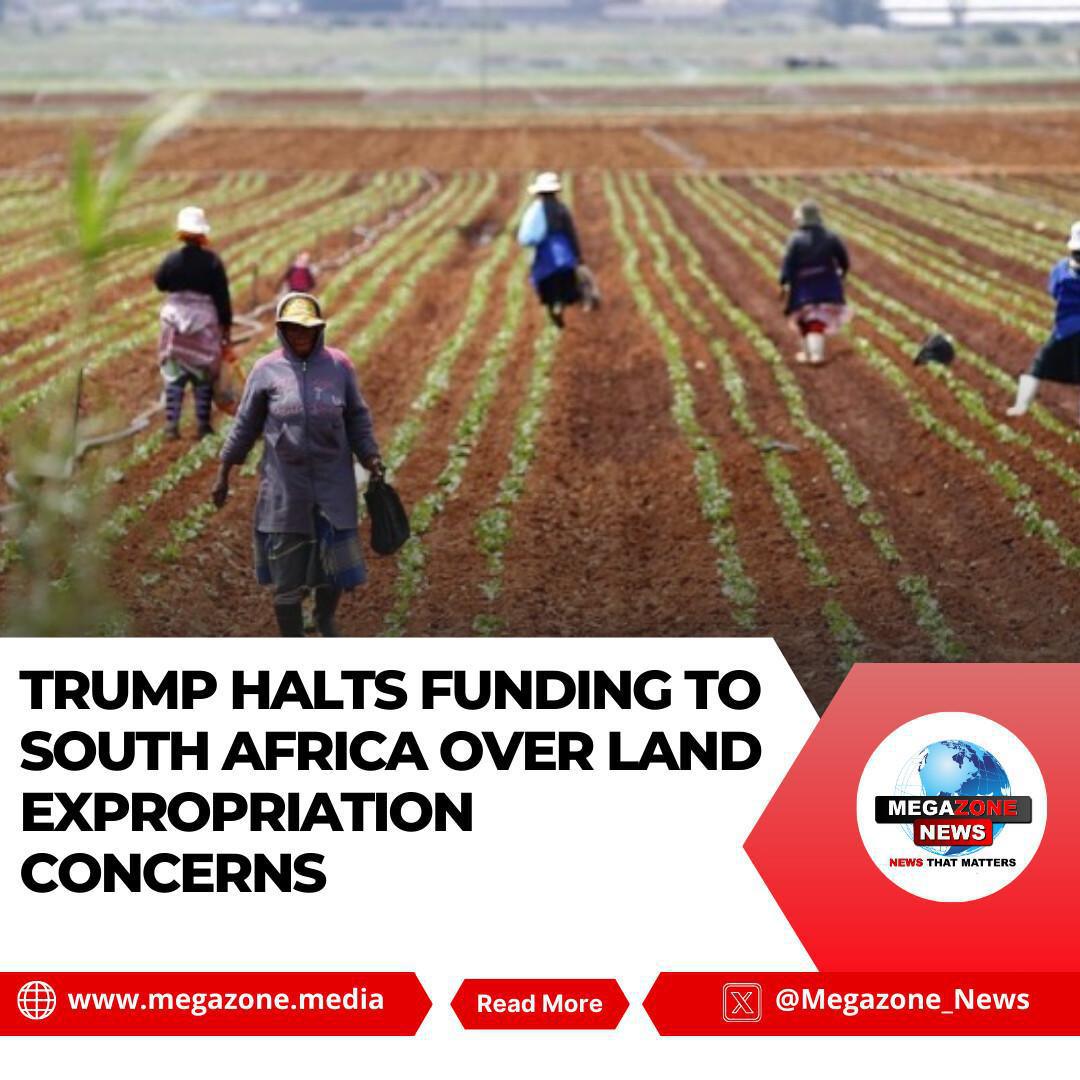Former U.S. President Donald Trump announced on Sunday that he would halt all future funding to South Africa, citing concerns over land expropriation policies and alleged mistreatment of certain groups. Trump’s remarks, made on his Truth Social platform, come in response to a controversial land reform bill signed into law by South African President Cyril Ramaphosa.
The new legislation allows the government, under specific circumstances, to offer “nil compensation” for property it expropriates in the public interest. Pretoria maintains that the law does not enable arbitrary seizures and emphasizes negotiations with landowners. However, critics fear it could lead to a situation reminiscent of Zimbabwe’s land seizures in the early 2000s.
“South Africa is confiscating land and treating certain classes of people VERY BADLY,” Trump wrote. “I will be cutting off all future funding to South Africa until a full investigation of this situation has been completed!”
Later, speaking to journalists, Trump doubled down on his criticism. “South Africa’s leadership is doing some terrible things, horrible things,” he said, without providing further details. “Until we find out exactly what is happening—because they’re taking away land and perhaps doing even worse—we are putting funding on hold.”
Historical Context and Controversy
The issue of land ownership remains a highly contentious topic in South Africa, where white landowners still hold a significant portion of farmland nearly 30 years after the end of apartheid. The government argues that land redistribution is necessary to address historic injustices, citing the 1913 Natives Land Act, which displaced thousands of Black families under white-minority rule.
The debate has drawn global attention, including from prominent conservatives such as billionaire entrepreneur Elon Musk. Musk, born in Pretoria, has publicly criticized South Africa’s land policies, echoing concerns from right-wing figures like journalist Katie Hopkins. Trump’s administration has also maintained close ties with tech industry leaders who spent their formative years in apartheid-era southern Africa, including PayPal co-founders David Sacks and Peter Thiel.
Thiel, who spent part of his childhood in Namibia when it was under South African rule, has faced allegations of supporting apartheid—claims a spokesperson has denied on his behalf.
While the South African government insists the bill seeks a fair and legal resolution to land inequality, critics warn of potential economic instability and a loss of investor confidence. With U.S. funding now under scrutiny, the diplomatic fallout between Washington and Pretoria remains to be seen.


